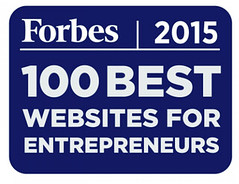 |
| iStock/Thinkstock |
One of my favorite people (minds) on the planet and the person who coined the term "globalization" died at age 81: Theodore Levitt. The reason why Professor Levitt became such a force in my life was because in the '80s -- before any individual or company was thinking about going global -- he turned me on to the importance of looking at the world as your market. He also knew how to deconstruct and solve problems by asking the right questions. Something to this day I still find myself doing. Here are some things I will remember the most about Levitt:
• Harvard Business Review -- He holds the record with Peter Drucker for publishing the most articles in
HBR.
• What turned me on to Levitt --
"The Globalization of Markets" and five other great articles authored by HBR talents.
Using the term "globalization" in a 1983 Harvard Business Review article about the emergence of standardized, low-priced consumer products. He defined that globalization as the changes in social behaviors and technology which allowed companies to sell the same products around the world.
• Marketing Myopia -- HBR Classic: A groundbreaking
article originally published in the Harvard Business Review (1960) in which he asked managers, “What business are you really in?” And that's probably why Starbucks is doing so well with its business model because they figured out early on that they were not just in the "coffee" business but in the "people" business. Levitt would be proud that his ideas were turned into practical solutions. Even Wikipedia features
Levitt's work. We all know that focusing too narrowly on anything creates limited results.
Another way Levitt posed a question is like this: “What problem are we trying to solve for our customers?” For tool makers, the implication is that it is not really about the tool. Rather, it is about the resulting condition that customers desire from the use of the tool. That is to say, it is holes in the ground they want, not shovels. Fascinating stuff. So pure. So simple. But so many people just don't get it. Levitt did.
•
Design Sense magazine No. 26 -- And I bet you didn't know Levitt contributed to this publication. Here's the title his work went under:
"How Major Companies Change Their Names"
An analysis of successful -- and not-so-successful -- name changes by New York Stock Exchange-listed corporations in the late 1950s and early '60s. Also: excerpts from Innovation in Marketing, by Harvard Business School Professor Theodore Levitt.
•
Marketing Imagination by Theodore M.Levitt -- My absolute favorite book (and according to my notes in the inside cover, I read it in 1984) on marketing that I still refer to today. It's so relevant that you never want to put it away.
• Two favorite remarks by Levitt that were made in "The Marketing Imagination" -- Henry Ford's: "They can have any color car they want, so long as it's black." -- Page 142. And Levitt's: "The purpose of a business is to create and keep a customer." -- Page 5.
HBR obituary on Professor Levitt
can be found here. My sympathies go out to the Levitt family during this time of great sadness.
May Professor Levitt rest in peace in our brave new world and I thank him for helping me and millions of other people understand (global) marketing.


























